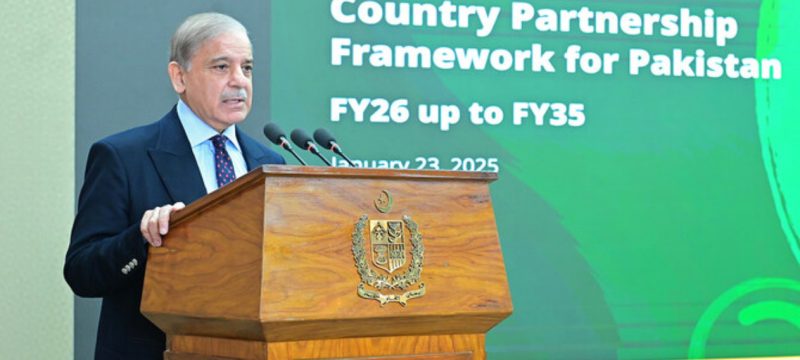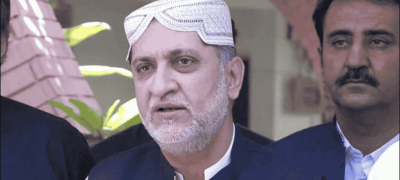Prime Minister Shehbaz Sharif has hailed the newly launched $20 billion Country Partnership Framework (CPF) with the World Bank as a pivotal initiative for Pakistan’s economic development. Speaking at the launch event on Thursday, the prime minister described the CPF as a transformative step, forged through a decade of strategic cooperation, designed to promote employment, climate resilience, and IT-driven initiatives.
The prime minister thanked the World Bank for its continued support, particularly in light of the new partnership that will span the next 10 years. The CPF aims to tackle some of Pakistan’s most pressing challenges, including economic instability, climate vulnerability, and technological advancement. He highlighted the role of the World Bank in backing vital projects like hydropower, water management, and economic reforms.
Also Read: World Bank Revises Pakistan’s GDP Growth Forecast to 2.8% for FY 2024-25
During the event, Shehbaz Sharif also underscored recent initiatives, including the digitization of the Federal Board of Revenue (FBR), and a pilot project at Karachi Port aimed at reducing corruption through faceless interactions between customs officials and importers. The project, he noted, is an effort to increase inland revenue and reduce collusion.
World Bank Vice President for South Asia, Martin Raiser, praised Pakistan’s recent reforms and expressed confidence in the CPF’s ability to anchor economic stability. He emphasized that the World Bank would work closely with the private sector and international development partners to meet the ambitious goals set under the framework.
The CPF aims to address critical development needs over the next decade, including improving health, education, and infrastructure. The World Bank plans to provide health services to 50 million people, ensure 12 million children gain access to quality education, and enhance climate resilience for 75 million people by 2035.









